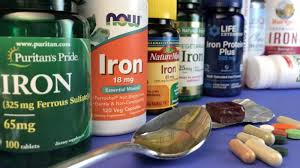Iron supplements are often recommended to individuals at risk of iron deficiency or those diagnosed with anemia due to insufficient iron levels. These supplements play a vital role in maintaining healthy red blood cell production and supporting oxygen transport throughout the body.
Who Needs Iron Supplements
Iron supplementation is particularly beneficial for individuals with increased iron requirements or who have difficulty maintaining adequate iron levels through diet alone. These groups include:
Infants and children during rapid growth stages
Pregnant and breastfeeding women, due to increased nutritional needs
People with chronic health conditions such as kidney disease, cancer, or gastrointestinal disorders that impair iron absorption
Women with heavy menstrual bleeding
Individuals recovering from surgery, burns, or significant blood loss
Patients who have undergone bariatric surgery
People with parasitic infections (e.g., helminths)
In all cases, iron supplements should only be used under the guidance of a healthcare professional, as both deficiency and excess iron can pose health risks.
When Should Iron Be Taken?
Iron is commonly prescribed as a preventive measure or to treat iron deficiency anemia. Specific situations that might call for supplementation include:
Low dietary intake of iron-rich foods
Difficulty absorbing iron due to medical conditions
Physiological demands, such as pregnancy or growth spurts
Recovery from surgery or trauma involving blood loss
Your healthcare provider will determine the appropriate timing and dosage based on your age, overall health, the severity of iron deficiency, and your body’s specific needs.
How to Take Iron Supplements
The recommended iron dosage varies by age and condition. Common guidelines for treating iron deficiency anemia include:
Children: 3 to 6 mg per kilogram of body weight daily
Pregnant women: 60 to 120 mg of iron combined with 400 mcg of folic acid per day
Adults (non-pregnant): 120 mg of elemental iron daily
Elderly: 15 mg of iron per day
Treatment Duration
Oral supplementation is usually continued for about six months or until hemoglobin levels return to normal. In more severe cases, or when oral supplements are not tolerated or effective, iron injections may be administered 1 to 3 times per week.
Best Time to Take Iron
To enhance absorption, iron should be taken on an empty stomach—ideally 1 hour before or 2 hours after a meal. Certain foods and substances can inhibit absorption, including:
Dairy products
Tea, coffee, and yerba mate (due to tannins)
Antacids
Antibiotics (specific types)
To improve absorption, consider pairing iron with a source of vitamin C, such as:
- Orange juice
- Lemonade
- Passion fruit juice
- Cherry juice
- Cashew juice
Types of Iron Supplements
Elemental iron is rarely administered on its own due to its instability. Instead, it’s combined with other compounds to improve absorption and stability. Common forms include:
Oral Iron Supplements:
Ferrous sulfate – the most widely used form
Ferrous gluconate – gentler on the stomach
Ferrous fumarate – higher iron content per dose
Chelated iron – often easier on digestion, sometimes better tolerated
These may also be combined with folic acid or vitamin B12 to enhance red blood cell production.
Injectable Iron:
Ferric hydroxide saccharate – typically used for patients who cannot take oral iron or have severe anemia
Often prescribed to those undergoing hemodialysis or chemotherapy
Possible Side Effects of Iron Supplements
While iron is essential, supplementation can cause some digestive discomfort. Side effects may include:
Metallic taste in the mouth
- Heartburn
- Nausea or vomiting
- Constipation or diarrhea
- Decreased appetite
These symptoms, especially nausea, typically appear 30 to 60 minutes after taking the supplement but often subside within a few days as the body adjusts.
Managing Side Effects
To reduce constipation or digestive upset:
Increase fiber intake (e.g., fruits, vegetables, whole grains, legumes)
Drink plenty of water daily
Speak with a healthcare provider about adjusting your dose if side effects persist
Who Should Avoid Iron Supplements?
Iron supplements are not suitable for everyone. They should be avoided in individuals with:
Hemochromatosis (a condition causing excessive iron accumulation)
- Thalassemia
- Sickle cell anemia
- Hemolytic anemia
Chronic gastrointestinal issues, such as gastric ulcers, ulcerative colitis, or persistent diarrhea
Taking iron inappropriately may lead to toxicity and damage to organs, so always consult a healthcare professional before beginning treatment.
Conclusion
Iron supplements are an effective tool in preventing and treating iron deficiency and anemia when used appropriately. They should always be taken under medical supervision to ensure proper dosage, minimize side effects, and avoid complications. With the right guidance, supplementation can significantly improve energy levels, cognitive function, and overall health in those with low iron levels



